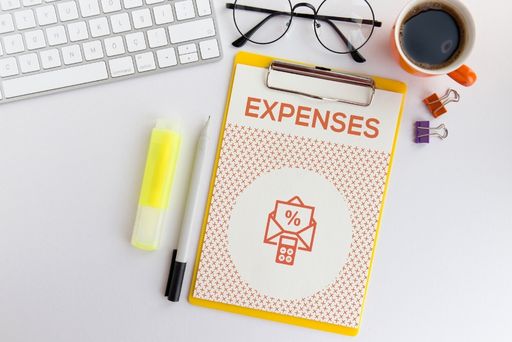Top 20 Common Advertising Expenses Examples for Small Business Owners
You’re probably spending a fair amount of money on advertising your small business to potential clients and customers. Did you know most of your marketing and advertising can be written off as a tax deduction to lower your tax bill? Whether you’ve got a whole marketing team running the show or you just purchased your first ad, most money spent on promoting your small business is tax deductible.
According to the IRS, the criteria that your advertising expense must meet to qualify as a deduction is that it is ordinary (i.e. common and accepted in your industry) or necessary (i.e. helpful and appropriate for your business). Marketing and advertising are both essential to growing and promoting your business, which makes them ordinary and necessary.
Just because the IRS terms an advertising expense as “ordinary” doesn’t mean you can’t be creative when it comes to ways you advertise. As long as the purpose is to bring in new customers and keep existing ones, you should be covered. Just be sure you know and document the business purpose.
The few exceptions include expenses that are used primarily for personal use or gain, not business promotion. In addition, though donating products or money to a community event or charity are tax deductible, donating services or time are not. Again, be sure to know and be able to show how the expense benefits your business. When in doubt about a specific advertising expense and if it’s tax deductible, ask your accountant.
20 Common Tax-Deductible Advertising Expenses for Small Businesses
Here’s a list of the top 20 most common advertising expenses for small business owners to keep in mind come tax season. All of these are tax-deductible:
- Website set-up, design, and maintenance
- Pay-per-click ads and online advertisements (Google, Facebook, LinkedIn, YouTube, etc.)
- Social media promotions
- Promotional materials with your logo such as t-shirts, mugs, pens, notepads and more
- Graphic design fees: logos, business cards, brochures, signs, printed or online advertisements, flyers, or other promotional materials designed professionally
- Printing of promotional materials: business cards, flyers, postcards, brochures, and coupons
- Storefront signs
- Vehicle signs or vinyl decals for windows
- Giveaways and promotions
- Radio advertisements
- Magazine or newspaper advertisements
- Television commercials
- Balloons, decorations, refreshments, and any other expenses incurred for parties or open houses promoting your business
- SEO services
- Packaging, design, and materials for your products

Tax-Deductible Goodwill Advertising Expenses
The following are considered goodwill advertising expenses and are tax deductible as well. Goodwill advertising is any type of promotion that keeps your small business in the public eye.
16. Sponsoring a youth sports team in your community such as little league baseball or soccer
17. Money donated to a school, charity, or local cause
18. Participating in a parade to promote your business, such as handing out flyers, candy, frisbees, pens, or shirts
19. Giving away products or samples
20. Advertisements encouraging people to donate to a certain charity, like the Red Cross
Are you feeling overwhelmed by tax and bookkeeping tasks for your small business? Don’t let the stress get to you. Reach out to the tax experts at Vyde today. Vyde handles the paperwork so you can focus on what matters most—growing your business. Your own accounting department, all rolled into one. Don’t hesitate, contact Vyde now!
FAQs about Tax-Deductible Advertising Expenses for Small Businesses:
What qualifies as tax-deductible advertising expenses for my small business?
Advertising expenses must be ordinary and necessary for your industry. This includes various marketing efforts aimed at promoting your business.
Can I get creative with my advertising strategies and still claim them as deductions?
Yes, as long as your creative strategies aim to attract new customers or retain existing ones, they can be tax deductible. Ensure you document their business purpose.
Are there any exceptions to tax-deductible advertising expenses?
Expenses primarily for personal use or unrelated to business promotion aren’t deductible. Donating services or time is also non-deductible.
How can I determine if a specific advertising expense is tax deductible?
Consult with your accountant if uncertain about the deductibility of a particular expense. Ensure you can demonstrate how it benefits your business.
What are some examples of goodwill advertising expenses that are tax deductible?
Examples include sponsoring local sports teams, donating to schools or charities, participating in community events, giving away products or samples, and promoting charity donations.
Interested in Learning More?
Schedule a free consultation with our team!






